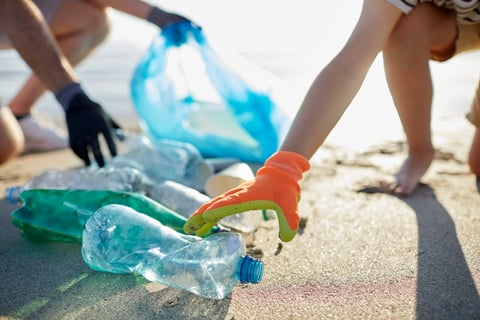Global Plastic Action Partnership Expands to 25 Countries
The Global Plastic Action Partnership (GPAP) has recently marked achievement by expanding its network to 25 countries. This initiative, launched by the World Economic Forum, aims to combat plastic pollution globally. With a combined population exceeding 1.5 billion, the expansion includes seven new countries – Angola, Bangladesh, Gabon, Guatemala, Kenya, Senegal, and Tanzania. This collaborative effort puts stress on the urgent need for sustainable plastic waste management solutions.
About GPAP’s Mission
GPAP seeks to address plastic pollution by promoting a circular economy. This model focuses on reusing, recycling, and sustainably managing plastic materials. The initiative aims to reduce the environmental impact of plastic waste, which poses severe threats to ecosystems, biodiversity, and human health.
Governance Structure
GPAP is governed by a Council, a Steering Board, and an Advisory Committee. The Governing Council comprises senior executives from founding members and key stakeholders, guiding the strategic direction and budget. The Steering Board oversees operational management, while the Advisory Committee provides strategic input and collaborates on programme delivery.
The Scale of Plastic Waste
Annually, around six million tonnes of plastic waste enter oceans, with even more contaminating land. GPAP aims to curb this leakage, encouraging a shift towards sustainable materials. This shift not only benefits the environment but also supports economic growth.
National Action Roadmaps
A key strategy of GPAP involves developing National Action Roadmaps. These are tailored plans for each country to tackle plastic waste effectively. The roadmaps have already mobilised $3.1 billion in investments and created safer jobs for informal waste workers.
Environmental and Economic Benefits
The initiative is also very important in reducing greenhouse gas emissions, as plastic production and waste management contribute to global emissions. GPAP’s focus on circularity can mitigate these emissions while creating green jobs, with the potential to generate up to six million jobs worldwide by 2030.
Collaborative Approach
GPAP operates through a collaborative framework involving governments, businesses, civil society, and experts. This inclusive strategy is designed to create sustainable economies while addressing the pressing issue of plastic pollution.
The Fight Against Climate Change
Plastic pollution is not only an environmental crisis but also a contributor to climate change. The plastics sector is responsible for approximately 1.8 billion tonnes of greenhouse gas emissions each year. GPAP’s systemic waste management solutions aim to reduce these emissions and promote sustainable practices.
Future Aspirations of GPAP
Looking ahead, GPAP intends to continue encouraging collaborative action and innovation. By refining strategies to tackle plastic pollution, the partnership aims to transform waste into valuable resources, promoting a circular economy that supports equitable growth and environmental resilience.
Month: Current Affairs - January, 2025
Category: Environment Current Affairs








